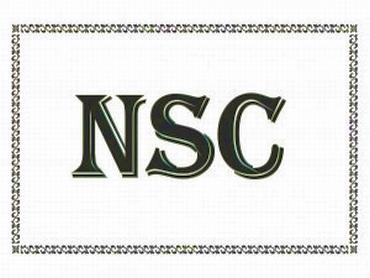Photographs: Rediff Archives Balwant Jain, CFO, ApnaPaisa.com
Around this time of the year many of us struggle to arrange for funds to make investments for tax benefits. Besides cash flow problem, we confront the problem of making the right choices with respect to lock-in period, return on investment and risk associated with the investment.
Moreover, this year an all-time high inflation has ensured that many taxpayers do not have enough money to make investments, only to suffer the double whammy of having to pay the taxes and reduced cash inflow. For many taxpayers, it is not possible to invest the money for a longer period in view of commitments in the near future.
But present provision of income tax act has products to meet needs of various taxpayers encompassing tenure, security and returns.
Here we will discuss one such product available under Section 80 C for tax deduction, which will shield you from the risk associated with volatility of rate of return expected. Particularly if you do not have enough funds to invest and do not want to commit your money for a longer period, then you can consider investing in National Saving Certificates (NSC).
 Apnapaisa is a price comparison engine that allows consumers in India the ability to compare the EMI, interest rates and other fees for home loans, car loans, personal loans, business loans, credit cards, compare online quotes and features of life insurance, health insurance, car insurance, travel insurance and other general insurance policies in India.
Apnapaisa is a price comparison engine that allows consumers in India the ability to compare the EMI, interest rates and other fees for home loans, car loans, personal loans, business loans, credit cards, compare online quotes and features of life insurance, health insurance, car insurance, travel insurance and other general insurance policies in India.
1. Tenure and interest
The NSCs have tenure of six years and the rate of interest is not subject to any fluctuations based on the market conditions.
The rate of interest is 8 per cent and the interest is compounded half yearly. The interest is fixed at the time of issue of the certificate unlike PPF account where the interest can be changed without any notice that too on the investments made in the past.
The most attractive part about National Saving Certificates is that you can obtain loans from banks with your NSC as security.
2. Borrow for investment in NSC
In case you are temporarily facing financial crunch to take benefit of deduction available under Section 80C, the National Saving Certificates are best suited for you.
So if you do not have funds now, you can go to the extent of temporarily borrowing from your friends or relatives and buy NSCs to the extent of unutilised portion of the deduction available under Section 80 C of the Income Tax Act.
They offer flexibility with regard to mode of payment also say if you are paying in cash, the certificates are issued immediately. But if you pay by demand draft or cheque, the certificates are issued on realisation of the instrument. Therefore it is advisable to tender cash and collect the certificates immediately.
3. Process for taking the loan
Once you have received the certificates from the Post Office you can approach any schedules bank, co-operative bank or co-operative credit society to grant you a loan against security of these certificates. It is advisable to approach the bank where you have banking relations so as to ensure faster disposal of your loan application.
Let me add here that as per the rules governing NSCs, the Post Offices are authorised to pledge your NSCs in favour of scheduled bank, co-operative banks and co-operative societies including cooperative credit societies in addition to certain other entities.
You have to make an application for marking pledge on the National Saving Certificates in favour of the lender which has to be signed by lender and you both. Once you tender the National Saving Certificates together with the application for marking the pledge, the post office will mark the pledge on the certificates and return the certificates to the bank.
On receipt of the NSC duly marked as pledged, the bank will disburse the loan. You can repay this money which you have borrowed from your friend or relative.
There are two options with regard to taking loan against security of National Saving Certificates, that is, either you can take a flat loan against NSC and pay in monthly EMIs or you can obtain an overdraft facility against security of these.
In case you think your cash flow is volatile, taking an overdraft account gives you flexibility to use the funds as and when the same are needed. However if you expect to pay certain sum of money every month, taking a flat loan against NSC is advisable.
The process for obtaining the loan or overdraft against the National Savings Certificates is quite simple and not as expensive as any other unsecured loans like personal loans or revolving your credit on credit cards. The banks normally grant you a loan up to 80 per cent to 85 per cent of the face value of the National Saving Certificates.
4. Rate of interest charged
The rate of interest charged on the loan against NSC certificate or overdrafts is very competitive and is lower than the rate charged on personal loans. However, interest charged on the overdraft account is little higher than the flat loan against security of the National Saving Certificates.
The rate of interest presently being charged by some of the banks on loan/overdraft against National Saving Certificates is given in the accompanying below.
In addition to the above interest, you will have to pay one time processing charges at 1 per cent of the amount sanctioned. Generally there are no prepayment charges on loan taken against NSC.
A word of caution
A lot of people are under the impression that Kisan Vikas Patra and National Saving Certificates both are also eligible for deduction under Section 80C, which is not true.
Only NSCs are eligible for deduction under Section 80 C and not Kisan Vikas Patra.







Comment
article